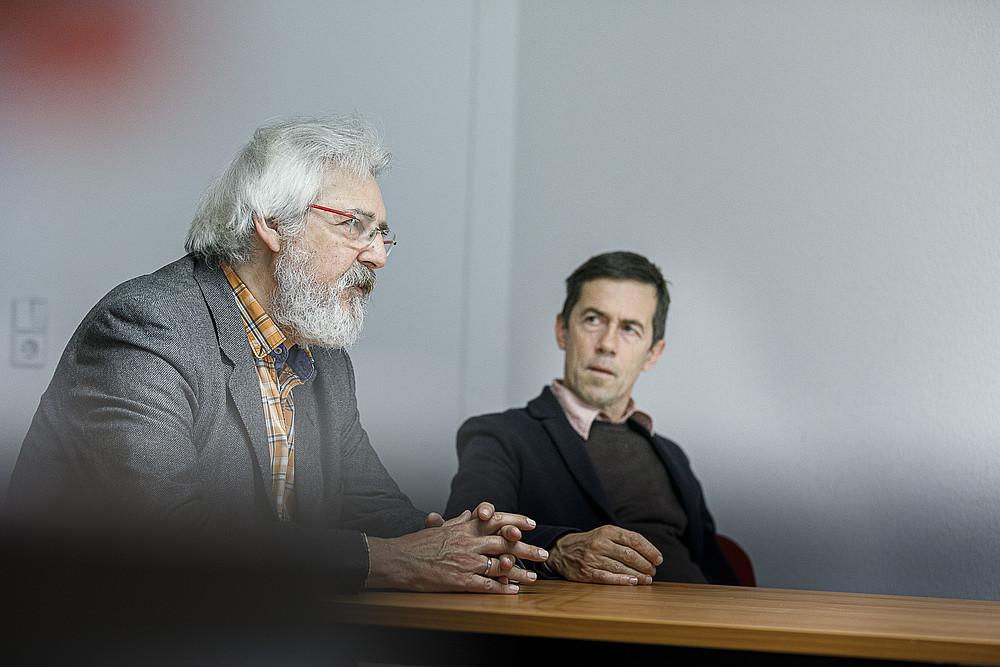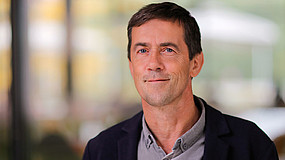Two cultural scientists who should know explain why Löbauers should cultivate love and Zittauers should be much prouder. The SZ series on the referendum, part 3.

Would it really be good for a small town like Zittau to want to become the European Capital of Culture? Or is it completely unrealistic? Would the world smile at us? How should the people of Zittau decide on election Sunday? "Definitely vote yes," say cultural scientists Matthias Theodor Vogt and Maik Hosang. In an interview with SZ, they also explain why.
Vogt: That's great! That's the ideal case of democracy. Everyone has the chance to have their say on this issue: Do we want it or don't we want it.
Hosang: Absolutely! It would be a great opportunity for the whole region, especially for our self-confidence and pride in ourselves and what we have to offer here. We really are the heart of Europe here. We have such a rich, great and important cultural history and cultural landscape here that should be the envy of the whole world.
Vogt: In Naples, the cultural mayor is called the "Mayor for Identity Issues". That hits the nail on the head: the region has such a rich and magnificent history, which is an incredible asset. But since 1945, the majority of Zittau has been surrounded by a foreign language area. Added to this is the economic disparity with an income level that is significantly lower in Poland and the Czech Republic. This overshadows the cultural and historical wealth. Zittau and the region now have a unique opportunity to regain their identity and pride.
Matthias Theodor Vogt (left) is Professor of Cultural Policy, Cultural History and Intercultural Cooperation at the Zittau/Görlitz University of Applied Sciences, Maik Hosang teaches Cultural Philosophy, Art Studies and Cultural and Social Change.
Hosang: Sure, against Dresden and Chemnitz, the other two applicant cities from Saxony, it looks like David against Goliath, but it only looks that way: Size alone doesn't matter at all, it's more about how the idea is carried. I am sure that Zittau has the greater potential in this respect. Let's just take the student demonstrations on Friday. There were 200 students on the streets in Zittau, in Dresden there were 400, and statistically there should have been 5,000.
Vogt: Let's just do it like the village festival: if everyone pitches in and gets involved, then it's a great opportunity without the big money.
Vogt: Yes. What we need here is not primarily money, but something that breaks through this apathy of hopelessness that I encounter again and again in the region. Cheeky, colorful, funny ideas, for example: I was recently in Löbau, where I was told that the name Löbau comes from the Sorbian word for love. That would be it: "Löbau - the city of love". I would wish for such courage. The whole country would be talking about an advertising poster like that.
Hosang: Or a slogan like: Germany's constitution comes from Zittau. Because very few people know that. Herrmann Lotze, one of the greatest German philosophers of the 19th century, grew up in Zittau and was instrumental in shaping our modern concept of "values".
Vogt: Or: "Live where others go on vacation". We have such a great cultural landscape here. But for some, the pride in all these things is still overshadowed by frustration over the scrapped GDR industry.
Hosang: Absolutely. The whole world will become aware of the border triangle, many visitors will come. And we can show everyone the intellectual and cultural wealth we have here.
Vogt: I would like to get political again at this point: The greatest enemy of prosperous development is dullness. Inviting people from all over the world and reaching out to our neighbors in the border triangle would be a wonderful framework for the Capital of Culture bid. Even if Zittau ends up coming second like Görlitz did back then, something positive will remain. It's worth it!
